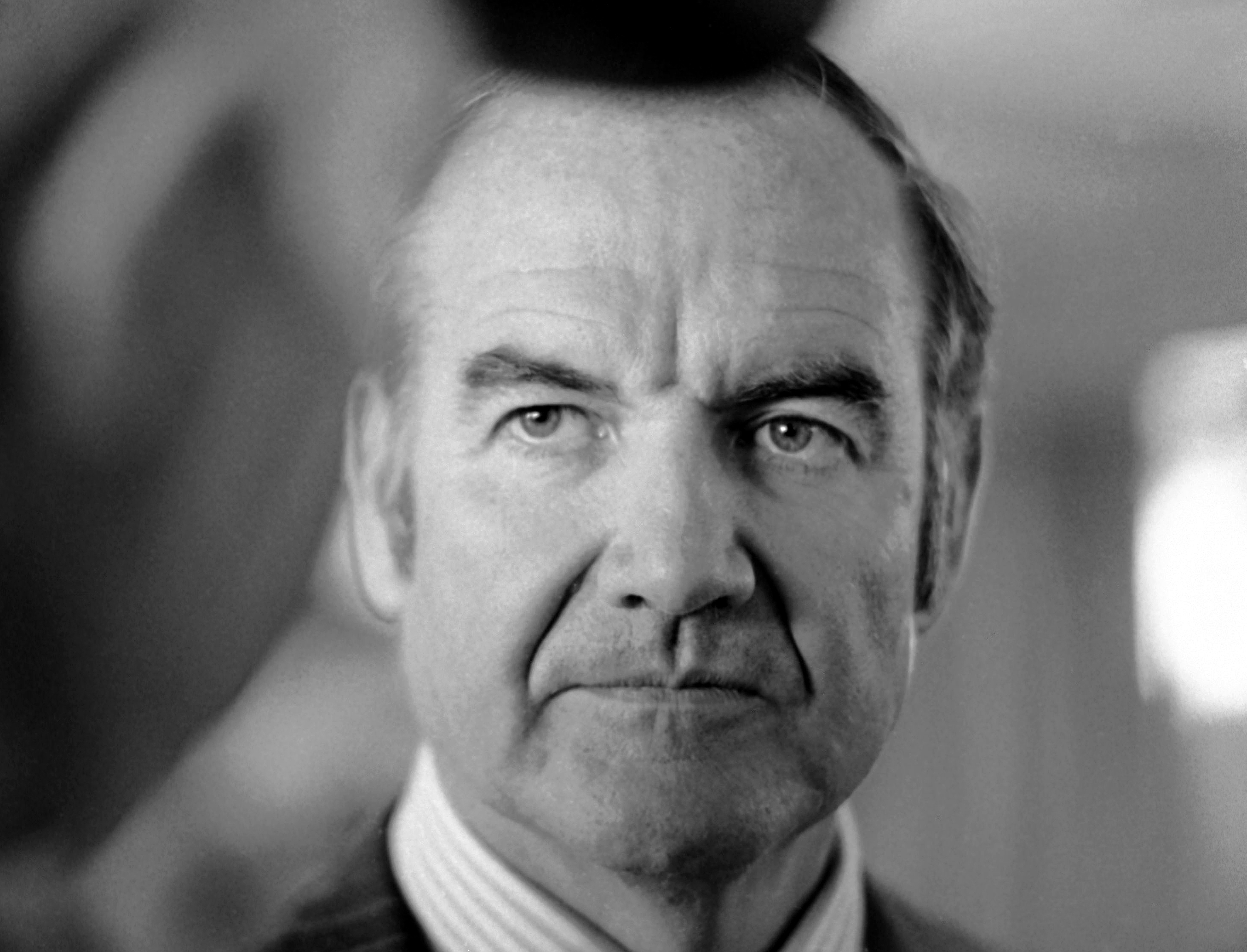George McGovern, 1922-2012
Friday, January 1, 1904
 FILE - In this March 25, 1974 file photo, Sen. George McGovern of South Dakota listens to constituents as he arrives at Pierre, S.D. airport. A family spokesman says, McGovern, the Democrat who lost to President Richard Nixon in 1972 in a historic landslide, has died at the age of 90. According to the spokesman, McGovern died Sunday, Oct. 21, 2012 at a hospice in Sioux Falls, surrounded by family and friends.
FILE - In this March 25, 1974 file photo, Sen. George McGovern of South Dakota listens to constituents as he arrives at Pierre, S.D. airport. A family spokesman says, McGovern, the Democrat who lost to President Richard Nixon in 1972 in a historic landslide, has died at the age of 90. According to the spokesman, McGovern died Sunday, Oct. 21, 2012 at a hospice in Sioux Falls, surrounded by family and friends.George McGovern, the former U.S. senator from South Dakota and Democratic candidate for president in 1972 who died at 90 Sunday, most likely will be remembered as the candidate who arguably suffered the worst defeat in U.S. presidential election history. Richard Nixon swamped him. McGovern carried only Massachusetts and the District of Columbia, winning 17 electoral votes to his opponent's 520. That defeat, however, is not a proper gauge for McGovern or his legacy.
He was a man of vision and principle, an able legislator and an indefatigable worker for the betterment of mankind whose legacy is best measured in ways other than votes.
McGovern sought the presidency as an outspoken foe of the Vietnam war and as an unapologetic liberal. He opposed war because he had a visceral understanding of it. Unlike many who supported going to war then, and who do so now, he knew its true cost. He gained that knowledge as a highly decorated B-24 bomber pilot in World War II. His opposition to the Vietnam War -- and to the U.S.. invasions of Iraq and Afghanistan in later years -- was neither sudden nor politically motivated. It was born in the embattled skies over Europe in the 1940s.
His liberal, progressive view of what America could and should be never wavered. He believed that the federal government had a duty to protect those most vulnerable in society, and to expand economic opportunity for all. While in the Senate, he worked ceaselessly in behalf of civil rights, and to develop and then expand food stamp and nutrition programs. Those were missions he continued to undertake for the decades after he left the Senate.
He was a man who made friendships across political boundaries, though those accustomed to the partisan rancor of contemporary politics might find that possibility hard to believe. He was firm friends with Bob Dole, the Republican leader who helped orchestrate his defeat in 1972. He simply said, and Dole echoed, that "you can't keep on campaigning forever."
Indeed McGovern and Dole joined forces to help create programs to provide feeding, nutrition and education programs in Africa, Asia, Latin America and Eastern Europe. They were remarkably successful in that work. They were named co-recipients of the World Food Prize in 2008. Dole remembered his friend in an emotional eulogy printed in The Washington Post on Monday. "McGovern," he wrote, "was a true gentleman who was one of the finest public servants I had the privilege to know."
That sentiment is a suitable epitaph for a man and a political figure whose indomitable spirit and unwavering belief in the goodness of the United States and of Americans were the hallmarks of a long and extraordinarily productive life.